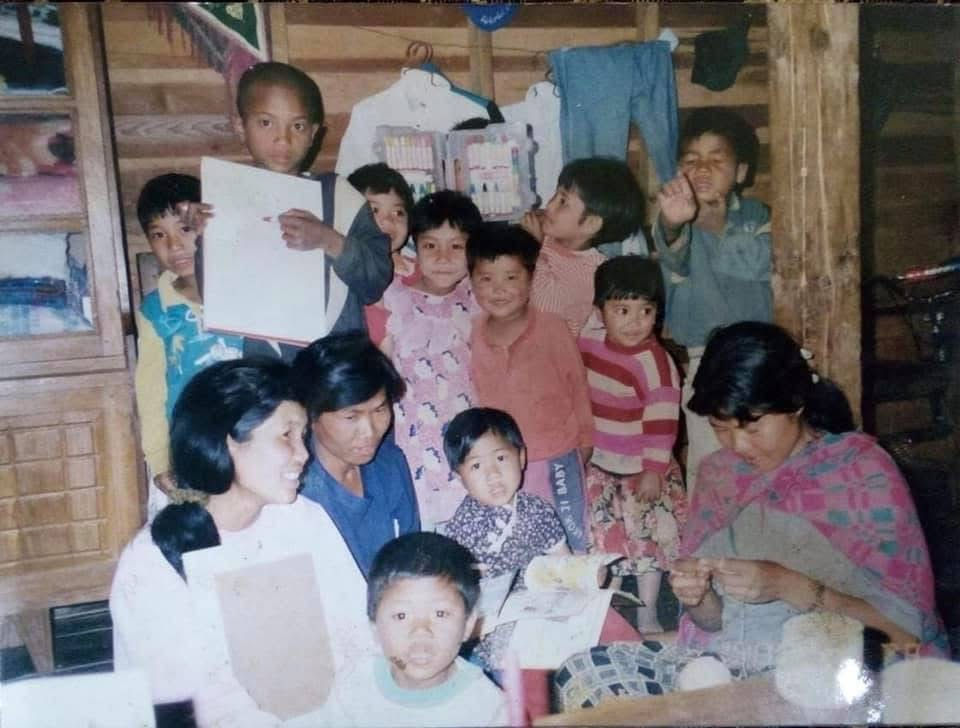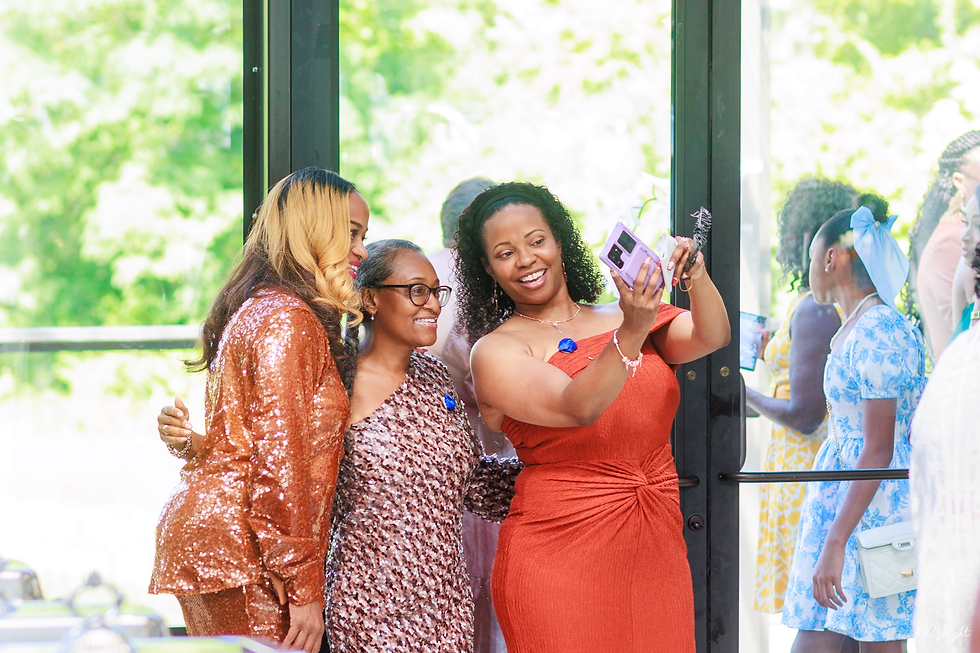The First — But Not the Last
- Marie Fisher

- Apr 30, 2021
- 7 min read
Updated: May 22, 2023
Reaching your success is always something worth celebrating. Everyone has seen what you have accomplished. However, most do not see the challenges and struggles you faced in getting to that finish line. Achieving a long-term goal can be almost surreal. You put your sweat and tears to get where you wanted to be in life when people doubted you. At one point, you might have thought, “maybe this wasn’t the right choice.” But you had your supporters: friends, family, peers—and your biggest supporter of all—yourself. They were all cheering for you at the end of the finish line. You crossed it, and you did what some thought you couldn’t.

The most rewarding achievement is being the first one in your family to earn a college degree. First-generation college students take the path less traveled (cue Robert Frost) to give themselves a better opportunity for not only themselves, but for their loved ones, and other prospective students who aspire to be like them. There are plenty of sacrifices that come along with this: having to leave your family, potentially moving to a different city, state, or even country. In addition, there’s adapting to the new surroundings, the new normal. It’s hard enough making that step into a new world, but the hardest step is taking the initiative to start a journey no one in your own family has taken.
Female college students specifically are facing and defeating the stigma of dropping out of school from intimidation and the fear of letting people down, including themselves. These women have faced their obstacles and hurdles by honing in on the light at the end of the tunnel. They knew it was all going to be worth it once they reached the end. They’ll tell their stories about why they chose to break the chain and attend a university, how they not only found their career choice, but they discovered who they are as women. They’ll inspire other women to attend college and show that other female, first-generation students are not alone in taking this path.
I was the first out of my two sisters to attend college. I was immensely thankful to my mom for being able to help me with applying and preparing for college by sharing her knowledge and experiences. It was scary to go to a place completely foreign to me. I hated not having my mom and sisters right by my side. At home, we would all eat dinner together and talk about our days. Eating dinner alone was weird for me. Though I had my roommate and other college friends, there was just something different about sharing gossip with your own mother. My mom would call me every day and tell me how much she missed me, but never did she say it to make me feel guilty. She always told me she was proud of me. When times were hard for me at school, I always thought of my mom telling everyone that her firstborn child followed her mother’s footsteps to be something great.
My mother, Nancy, is a Mexican-American, first-generation college student. She exhibited strength and confidence, proving first-generation women can go to college. My mother wanted to set me up for success, so she knew she had to step up to an obstacle none of her family members had previously taken. She attended Ball State University as an undergraduate in the late 80s. Although the college attendance rate for minorities was increasing, the university was still predominantly white. She said one of the biggest struggles she faced was the intimidation of being one of few minorities going to college. She felt like she stuck out and didn’t think she belonged there. Although her parents had never attended university, they always supported her in furthering her education. She had the confidence to beat the odds because she knew her parents had confidence in her.
When interviewing my mother, she shared, “My parents were my biggest supporters, but funds were low to support my college tuition. Although people doubted me of being a first-gen[eration], Hispanic woman, this gave me more strength to keep doing exactly what I was doing. Being a minority gave me more scholarship opportunities to help me continue to go to school. It really made me see the university also wanted to see my success.”
Keylin, a graduate of the Class of 2020 at Indiana University Purdue University Indianapolis (IUPUI), is the first person in her family to earn a four-year degree. She chose to “break the chain” by going to college and making herself a stronger and more confident woman. She wanted to show that her mother’s hard work and effort did not go unnoticed.

She knew going to school would show her mom that she had given her daughter an amazing opportunity to take for herself. She knew taking on this new journey would make not only her mother proud, but would also make herself proud. Being the oldest of two younger brothers, it was important for her to be a role model for them.
“Breaking the pattern meant that I would be taking a huge step out of my comfort zone, not only for myself but for my family, as well. I wanted to set an example for the younger kids in my family, especially my two younger brothers... Show them that we all have the opportunity to make anything out of ourselves. It’s okay to break the pattern and reach our life goals,” Keylin shared.
Leaving home can be one of the biggest struggles when attending college. It moves you out of your comfort zone and can cause feelings of guilt for leaving your family behind. Being the oldest of two younger sisters, I felt I was almost abandoning them. My parents were going through a divorce when I was entering college. It was a big stressor, and I worried I wasn’t going to be there to support my mother. My sisters were also facing emotional distress from the divorce, and it saddened me knowing I couldn’t be there for them. However, my mom knew I needed to go to school, and she continued to encourage me to attend. Throughout the whole process, she was still incredibly supportive of me being hours away from home. The timing of it all was not ideal, but she knew the opportunities a college degree would offer and she wanted me to pursue my dreams.
Like me, my mom also felt a sense of guilt when going to school. She was the self-proclaimed
“second mother” in the family. My mom only spoke Spanish growing up as a kid. She started to learn English when her older brother started going to kindergarten. As she strengthened her English-speaking skills, she passed them down to her mother who knew little English. When she continued learning, she saw how much her family needed her. But she recognized her skills were not just needed by her family, but other kids who wanted to learn another language. My mom quickly realized how beneficial it was to be bilingual, which gave her an edge some of her college peers didn’t have. This inspired her to become a high school Spanish teacher as well as teach college-level Spanish courses. She said, “I loved seeing my teaching get through to students, so it made me feel I was in the right place of study. It let me know that going to college was the best decision I could have made for myself.’
Keylin has also defeated the stereotypes challenging minority first-generation women. Through college, she discovered who she was as a person. At times she had self-doubt, leaving her wondering if she really belonged on campus. When school was hard, she knew she could rely on her mother to be her biggest supporter and to lift her up and help her recognize the strong and confident woman her mother raised her to be. She’s earned her Bachelor’s in Organizational Leadership, and she’s confident going to college was a great decision for herself.
“It feels good knowing [that] I was able to overcome what many others couldn’t. I am glad I decided to do this because getting my college degree allowed me the opportunity to open many doors,” Keylin said. She wishes for other prospective first-generation women to do what she did and take on the challenge she has now completed. During the journey, she emphasizes the importance of never giving up on yourself—even in the rough of it.
As for me, college really made me see who was really there for me in the end. Going into school my first year, as an exercise science major, I had classmates telling me I shouldn’t be in this field of study. Grad school professors came into our classes saying the odds of getting accepted into a physical therapy program were low. It scared me to the point I ended up changing my major. I was told that any other major out of STEM wasn’t “worth my money”. But I didn’t care about getting a six-figure job out of college. I wanted to do something I loved.
I chose journalism as my major because I have more passion for my writing and story-telling than I ever did with my hopes of becoming a doctor. I am now doing what I love and with people who supported one another—people who supported me. I am very thankful for my mother who chose to be the first one in our family to go to college. She gave my sisters and me a true example of a minority woman at university, and she shared her hard times, as well. She gave me the confidence I needed and helped me adjust from living in a rural town to going to a school in a big city.

Keylin Cruz is also someone who has helped me get through school. She helped me realize I wasn’t alone in my situation. She shared her story of being the first in her family to go to school, and it motivated me to keep pushing forward. I had a major identity crisis being both Caucasian and Hispanic. Growing up in a predominantly white town made me feel like I was “different” from everyone in my high school. When I attended a university with more diversity, I still felt like I didn’t fit in anywhere being mixed. Keylin was one of my first friends who accepted me for who I am. She told me I should be the person I want people to perceive me as. She made me proud of my Hispanic roots and encouraged me to not feel the need to hide who I am. Both of these women have shaped me into the woman I am today. They’ve helped me accomplish life-changing goals, and pushed me to be the one inspiring my younger sisters to go to college. I am forever grateful for them.
First-generation women have truly inspired me. They have shown me the “impossible” is achievable...That just because something may not have been done before by someone they know or someone in their family, they are capable of doing it. They’re showing younger girls that their dreams are within reach. There are hundreds of women who are cheering you on at the end of your finish line, whatever that may be, but it’s you who needs to take the first step to start your race.
Photography of Keylin Cruz by James Napier. Article written by Marie Fisher.















Comments